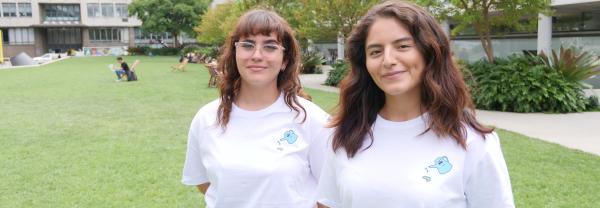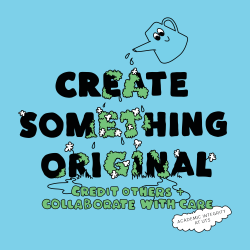To maintain academic integrity, create something original. This means doing all your own work and submitting work that is original for that assessment.

1. Do your own work, from start to finish
To maintain academic integrity:

- Communicate what you have learnt in your own words.
- If it's unclear in your subject outline, confirm with your tutor, lecturer or supervisor whether your assessment is to be completed individually or as a group. If it's an individual assignment, it should be your own individual work.
- It’s okay to use spelling and grammar checkers to check and correct your own words, although they may not be permitted in some assessments (such as exams, quizzes etc).
- It's okay to use translation tools (such as Google Translate) to find a word or short phrases. Translation tools may not be permitted in some assessments (such as exams, quizzes etc).
- Follow your subject coordinator's advice about the use of generative artificial intelligence tools (GenAI) (such as ChatGPT and DALL-E) in your assessments. For more info about GenAI, take a look at UTS's GenAI study guide. Don't forget to acknowledge its use too!
To avoid misconduct:
Looking for support?
- Don’t use translation tools (such as Google Translate) to translate your assessment written in another language into English.
- Don't copy a friend’s assessment (wholly, partially or reworked) and claim as your own work.
- Don't get a friend, classmate or family member to write an assessment for you and claim as your own work.
- Don’t purchase or use assessments from the internet or file sharing platforms and claim as your own work.
- Stay well clear of services that offer to ghost write or write an original assessment for you (wholly, partially or reworked) and claim it as your own work.
2. Submit work that's original for that assessment
To maintain academic integrity:
- Submit work that you haven't previously submitted for assessment. This applies to words, images, code, data and results, and includes whole, partial or reworked material.
- There may be times you would like to or it’s appropriate for you to build on your previous work. If this happens, talk to your lecturer, tutor or supervisor before you start work on your assessment to get their permission.
To avoid misconduct:
- Even when it's your own work, don't reuse or recycle (whole, partially or reworked) assessments for another assessment without getting permission from your tutor, lecturer or supervisor first.
3. Exams should be just you
To maintain academic integrity:
- Do the exam yourself.
- Understand what you can and can’t access during each exam you’re sitting (exam conditions and permitted resources may be different for each exam you take).
- If you do need to speak to someone during your exam:
- Follow the advice from your subject coordinator if they have given you contact information for the exam.
- For technical issues, contact the UTS IT exam hotline.
- For ProctorU issues, use the ProctorU help chat function.
- If you get sick, see special circumstances.
To avoid misconduct:
- Don't communicate or collaborate with anyone during your exam.
- Don't access or use any unauthorised equipment or materials during your exam. This includes mobile phones, smart watches, and other devices, and depending on the rules for the particular exam, this may include other materials such as notes (even if they’re your own), translation tools, generative AI tools (such as ChatGPT and Dall-E), Google, and web pages.
- Don’t use generative AI tools. However, if your subject coordinator or tutor has allowed their use for a particular exam, don’t copy or rework any materials from these tools and claim as your own work without declaring its use.
- Don't copy from another student.
- Don’t purchase or use answers from the internet or file sharing platforms, or access or use services that create original materials for you, such as Chegg.
- Don't get someone else to sit your exam on your behalf.
- Don't sit an exam for someone else.
Learn more about exam conditions, AI invigilated, timed LMS and take home exams.
4. Make sure any data or results are accurate and complete
To maintain academic integrity:
- Do any research or experiments yourself (or part of a group if that's allowed).
- Report data and results honestly and completely.
To avoid misconduct:
- Don't make up data or results.
- Don't change, manipulate or leave out data or results.
- Don't manipulate research materials, equipment or processes.

